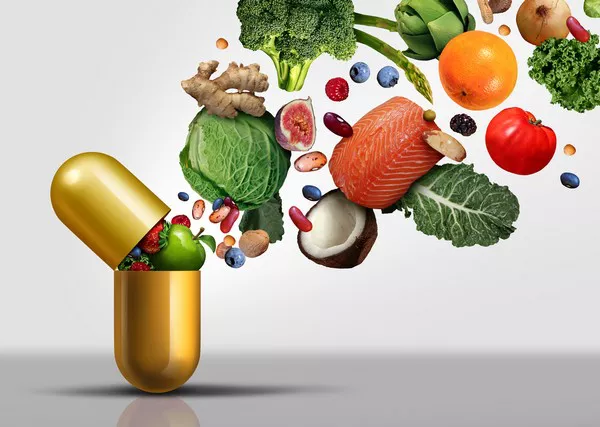Vitamins are essential organic compounds that play a crucial role in maintaining overall health and supporting various bodily functions. They are classified into two main groups: water-soluble vitamins and fat-soluble vitamins. In this comprehensive guide, we will focus on the water-soluble vitamins, exploring the vital role they play in our health, the benefits they offer, their food sources, and the potential risks of deficiency. By understanding which vitamins are not soluble in water, we can make informed choices to ensure our bodies receive the necessary nutrients for optimal well-being.
Water-Soluble Vitamins: An Overview
Water-soluble vitamins are a group of vitamins that dissolve in water and are not stored in the body for extended periods. Unlike fat-soluble vitamins, which are stored in fat tissues, water-soluble vitamins need to be consumed regularly through the diet to maintain adequate levels. These vitamins include vitamin C and the B-vitamins, which consist of B1 (thiamin), B2 (riboflavin), B3 (niacin), B5 (pantothenic acid), B6 (pyridoxine), B7 (biotin), B9 (folate), and B12 (cobalamin).
The Role and Benefits of Water-Soluble Vitamins
1. Vitamin C (Ascorbic Acid)
Vitamin C is known for its role as an antioxidant, protecting cells from damage caused by free radicals. It supports the immune system, promotes healthy skin, aids in wound healing, and enhances the absorption of iron from plant-based foods.
See Also: 9 Important Roles of Vitamin C
2. B-Vitamins
The B-vitamins collectively contribute to various metabolic processes in the body. They play a role in energy production, nerve function, red blood cell formation, and DNA synthesis. B-vitamins also support healthy skin, hair, and eyes, as well as help maintain a healthy nervous system.
See Also: Why Are B Vitamins Called B Vitamins: What You Want to Know
Food Sources of Water-Soluble Vitamins
1. Vitamin C
Excellent sources of vitamin C include citrus fruits (oranges, grapefruits, lemons), berries (strawberries, blueberries), kiwi, tomatoes, bell peppers, and broccoli. Consuming a variety of colorful fruits and vegetables can help ensure an adequate intake of vitamin C.
2. B-Vitamins
B-vitamins can be found in a range of foods. Vitamin B1 is present in whole grains, legumes, and nuts. Vitamin B2 is found in dairy products, eggs, and leafy greens. B3 is abundant in meats, poultry, fish, and whole grains. Vitamin B6 is present in meats, bananas, and potatoes. B7 can be found in eggs, nuts, and certain vegetables. B9 is abundant in leafy greens, beans, and fortified grains. B12 is primarily found in animal products like meat, fish, and dairy.
Risks of Water-Soluble Vitamin Deficiencies
1. Vitamin C Deficiency
A deficiency of vitamin C can lead to scurvy, a condition characterized by weakness, fatigue, bleeding gums, and joint pain. Including vitamin C-rich foods in the diet is crucial to prevent this deficiency.
2. B-Vitamin Deficiencies
Deficiencies in B-vitamins can lead to various health issues. For example, a deficiency in B1 (thiamin) can result in beriberi, causing nerve, muscle, and heart problems. B2 (riboflavin) deficiency can lead to skin and eye issues. B3 (niacin) deficiency can cause pellagra, leading to skin rashes, diarrhea, and neurological symptoms. B9 (folate) deficiency during pregnancy can result in neural tube defects in the developing baby. B12 (cobalamin) deficiency can lead to anemia and nervous system disorders.
Meeting Water-Soluble Vitamin Needs
1. Balanced Diet
A balanced and varied diet that includes a wide range of fruits, vegetables, whole grains, lean proteins, and dairy products can help ensure an adequate intake of water-soluble vitamins.
2. Dietary Supplements
In some cases, dietary supplements may be necessary to meet water-soluble vitamin needs, especially for individuals with specific dietary restrictions or increased requirements. However, it’s important to consult a healthcare professional before starting any supplementation.
Conclusion
Water-soluble vitamins, including vitamin C and the B-vitamins, are essential for maintaining overall health and supporting vital bodily functions. Unlike fat-soluble vitamins, water-soluble vitamins need to be consumed regularly through the diet. Adequate intake of these vitamins is crucial to prevent deficiencies and promote optimal well-being. By incorporating a variety of vitamin-rich foods into your diet and seeking guidance from healthcare professionals, you can ensure that your body receives the necessary nutrients for a healthy and vibrant life. Remember, a well-balanced diet and a focus on nutrient-rich foods are key to meeting your water-soluble vitamin needs and enjoying the benefits they offer.

